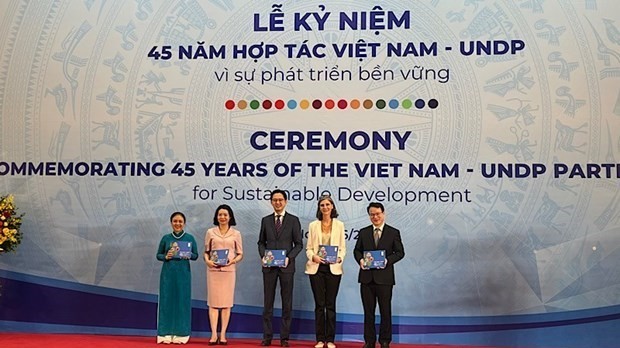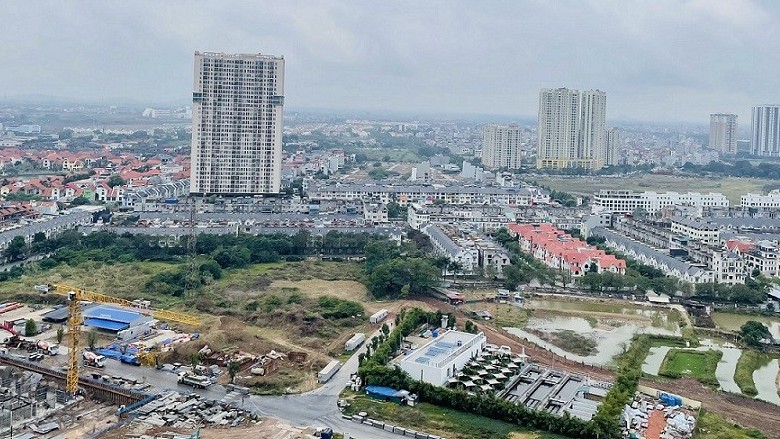
JCER believes Viet Nam will become middle-income country by 2023
Latest
| 266 Vietnamese repatriated from the Middle East due to COVID-19 |
| Viet Nam welcomes all initiatives and efforts to restart the Middle East peace process |
 |
| JCER believes Vietnam will become middle-income country by 2023. |
Running with the theme of “Asia in the coronavirus disaster: Which countries are emerging”, the report released by JCER is titled, “Asia in the COVID-19 epidemic: Which countries will emerge”. In the account, JCER addresses the impact of the spread of the novel coronavirus (COVID-19) pandemic, whilst looking at how Asian economies are faring compared to others globally. Based on the damage assessment, the report offers forecasts of economic growth, in terms of real gross domestic product growth rates, economic scale, through nominal GDP, and income per capita, the nominal GDP per capita, of 15 countries and territories across Asia and the Pacific.
Most notably, two main scenarios are considered, including a “baseline” or standard scenario in which the effects of the COVID-19 pandemic are confined to the current economy. This is in addition to an “aggravated COVID-19 scenario” which affects not only the current situation, but also larger structural trends such as globalization, urbanization, and progress in innovation.
This standard scenario assumes that the COVID-19 pandemic is a transient event, similar to an earthquake, that will not affect economic structures over the medium term. In line with this assumption only the nation, along with China and Taiwan (China) are on track to maintain positive annual growth rates this year. Indeed, India’s rate is likely to be negative by over 10%, while the Philippines is expected to see a contraction of more than 8%. Hong Kong (China), Thailand, Canada, Malaysia, and Singapore are all facing the prospect of their GDP shrinking by more than 6%.
Moving forward to 2029, China’s economic scale is forecast to exceed that of the United States, and by 2035, the gap is likely to be roughly equivalent to the size of Japan’s economy. In addition, China’s economic scale, including that of Hong Kong (China), in 2035 could reach a figure of US$41.8 trillion, only slightly less than the combined scale of both the US and Japan at that point, which could be US$42.3 trillion.
Furthermore, China is set to become a high-income country even earlier, achieving this feat in 2023, with its income per capita reaching US$28,000 in 2035, a sum that is comparable to the current figures of Taiwan (China). However, this would still be shy of the Chinese Government’s assumed target of U$30,000.
In relation to the country, it is anticipated to maintain a growth rate of approximately 6% in 2035 due to its strong exports. This would therefore propel the Vietnamese economy to overtake the economy of Taiwan in 2035 in terms of scale whilst also making it the second-largest economy in Southeast Asia after Indonesia. Indeed, the nation is poised to achieve upper-middle-income status by 2023, with income per capita set to reach US$11,000 by 2035.
The aggravated COVID-19 scenario details an outcome in which the pandemic not only damages the contemporary economy, but also impacts urbanization, trade openness, R&D spending, and a host of other factors, therefore undermining the country’s potential growth rates over the medium term.
According to this scenario, the growth rates of the US, Vietnam, Singapore, and others in 2035 would be significantly lower than those under the standard scenario, largely due to trade blockages. In addition, China would therefore be relatively unaffected and would be capable of emerging in a strong position.
Moving forward, the JCER forecasts that China’s economic scale could surpass that of the US by 2028, a year earlier than predicted in the standard scenario. As of 2035, the gap with the US would begin to widen, thereby bringing the economic scale of China, including Hong Kong (China), to US$41.8 trillion, slightly more than the US$41.6 trillion of the US and Japan combined.
Moreover, the Vietnamese economic scale in 2035 is expected to remain smaller than that of Taiwan (China).

| Diplomats, firms discuss trade among Vietnam, Africa, Middle East Economic ties between African and Middle Eastern countries and Southeast Asia in general, Vietnam, in particular, is still constrained, said Deputy Prime Minister and Foreign ... |

| “Doi Moi 4.0” needed to sustain high quality growth: report Vietnam should make a strategic shift towards more productivity and innovation-based economy while making the most of the ongoing demographic dividend to sustain high ... |

| IMF willing to support Vietnam to achieve higher average income The International Monetary Fund (IMF) hopes it would support Vietnam to become a country with higher average income and even high income in the next ... |
















